Syrian Ceasefire: Truce Terms Could Help, Not Hinder ISIS, Al Qaeda’s Hold In Syria
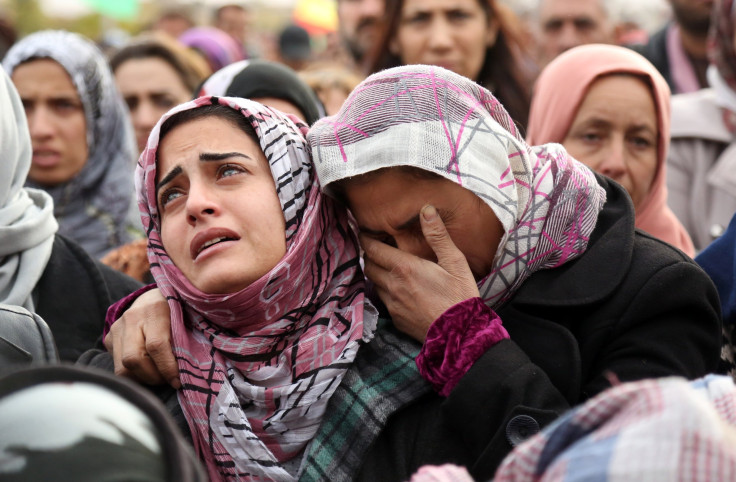
BEIRUT— A ceasefire is defined as a temporary suspension of fighting, but when it comes to the Syrian civil war things are rarely that simple.
After five years of fighting, a nationwide ceasefire set to begin Saturday was announced earlier this week, a day after the Islamic State group, or ISIS, carried out the deadliest suicide bombing attacks the country has seen since the start of the conflict.
The terms of the truce appear clear: Terrorist organizations are exempt from the “cessation of hostilities.” The kicker is that these organizations, as determined by the U.N. Security Council, including the Islamic State group, al Qaeda’s branch in Syria Jabhat al-Nusra and "affiliates," are some of the biggest fighting forces on the ground, prompting analysts to speculate that the ceasefire won't result in much ceasing of fire at all.
“How are you going to impose a truce while you’re excluding major players?” Ibrahim Fraihat, senior foreign policy fellow at Brookings Doha Center, told Bloomberg News. “They don’t see an incentive to impose or to abide by a truce.”
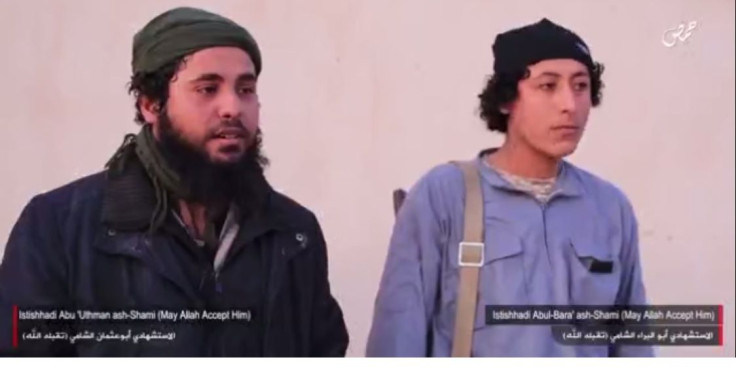
According to the terms agreed upon Monday by Russia and the U.S., the ceasefire will require all parties to halt fighting and advances on territory all over Syria, except in areas held by the group also known as ISIS, Jabhat al-Nusra and other U.N. Security Council-designated terrorist groups. This means that ISIS, Nusra and their growing number of affiliates in Syria, are not required, under the terms of the truce, to stop their operations against those factions included in the ceasefire agreement. If such an attack takes place, the nonterrorist faction is permitted to use “proportionate force ... when responding in self-defense."
“I don’t think the ceasefire will occur. There’s no reason for ISIS and Jabhat al-Nusra to respect it. [They] will spoil the ceasefire,” Jennifer Cafarella, a Syria analyst at the Institute for the Study of War, told International Business Times.
ISIS claimed responsibility for several suicide bombings in Syria on Sunday that killed at least 155 people and injured hundreds more. Both attacks targeted Syrian regime-held areas, one in the province of Homs and the other near the religiously significant Shiite shrine of Sayyida Zeinab in the capital Damascus.
"The atrocious crimes of extremists are aimed at scaring the peaceful population, subverting attempts to reach a long-term political settlement to the Syrian crisis in the interests of all Syrians and efforts to end violence and bloodshed," Russia's Foreign Ministry said in a statement.
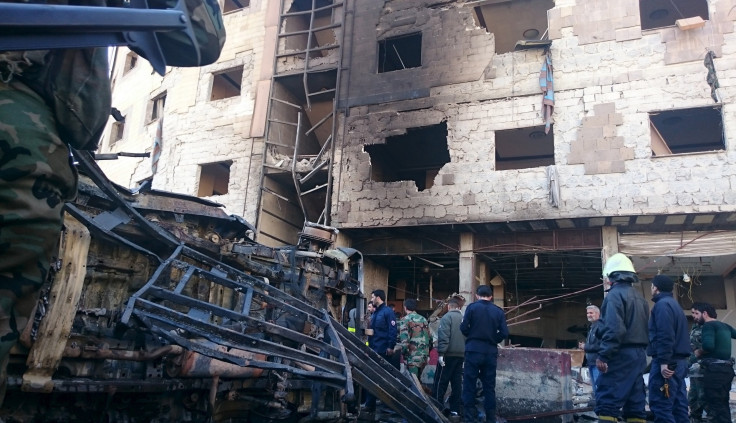
Sunday’s attacks — especially inside Damascus, which is largely considered to be the most stable territory in Syria today — are not common operations for ISIS, which mainly operates in the northern provinces of Syria. But the scale and nature of the attacks are part of the ISIS military strategy to undermine the stability of the area with sporadic but deadly assaults.
“We're seeing ISIS accept losses [in Aleppo and Hassakeh], which indicates that they’re preparing for something big, perhaps in the southwest ... undermining stability in regime areas,” Cafarella said.
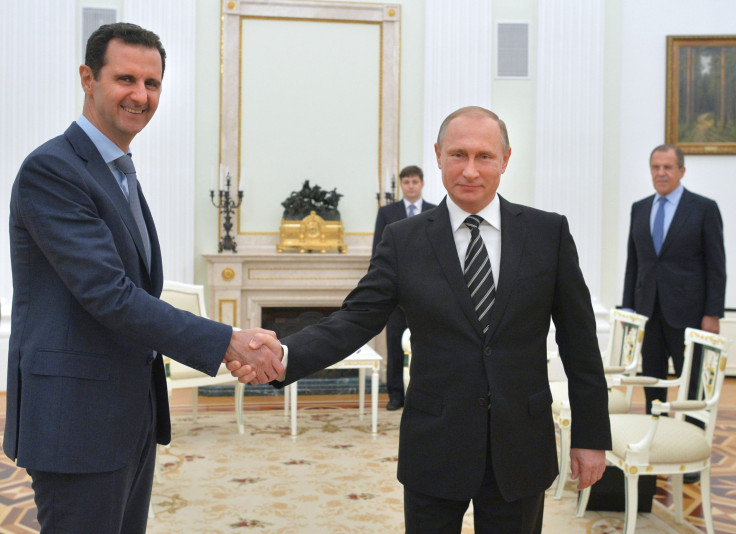
In the last month, ISIS accounts on social media have been sending messages about Homs prison and discussing a possible prison break. Freeing prisoners from Syrian President Bashar Assad’s state-run prisons, where the majority of inmates are Sunni and anti-regime, is a tested ISIS tactic. Last year, militants broke open Tadmur Prison, where several thousand Syrians had been incarcerated for years for opposing Assad’s regime.
After these anti-regime tactics, ISIS decreased its focus on targeting the Syrian regime and began to govern and impose laws on the area. For most of last year, ISIS didn't target regime areas, unlike the Nusra Front which established itself as a strong component of the Syrian opposition fighting the Assad regime. But as the regime and its allied forces have made major gains in Aleppo in recent weeks, encroaching on ISIS territory in the north, the militant group has moved towards playing a bigger role in the Syrian opposition.
As opposition groups face growing pressure from Russian airstrikes and pro-regime fighter advances, they are increasingly banding together, Cafarella told IBT.
ISIS reportedly partnered with Islamist opposition faction Jund al-Aqsa on Sunday, to cut the major Syrian regime supply line to Aleppo, Syria’s largest city. The partnership was a bizarre one, as the week before Jund al-Aqsa leaders pledged allegiance to rival Nusra Front.
This fluid state of allegiances is likely to become even more common during the ceasefire, Cafarella said: “ISIS will compete with Nusra for allegiance from opposition groups and start trying to consolidate foreign fighter groups.”
Nusra has positioned itself as a Syrian-centric group, unlike ISIS which relies heavily on foreign fighters, but both terrorist groups have repeatedly joined forces with a diverse mix of rebel groups. Since mid-2015, Nusra received pledges of allegiance from a predominantly Uzbek group, Katibat al Tawhid wal Jihad and the Russian-speaking Crimean Jamaat.
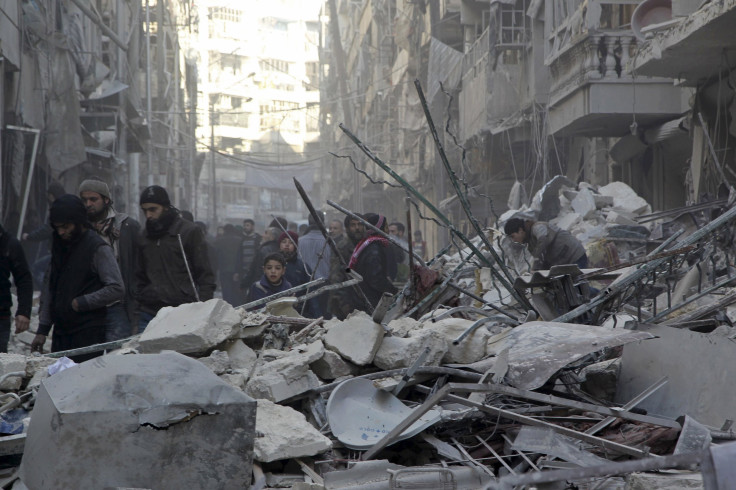
Nusra militants have downplayed their role in al Qaeda's long-term plan to establish an Islamic "emirate,” opting instead to market themselves as the spearhead of the Syrian opposition intent on overthrowing Assad’s regime, a strategy that has won the group friends: In the past two years, Nusra has adapted its strict al Qaeda policies to gain the favor of rebel fighters and civilians in opposition-held areas and, more recently, Nusra has coordinated military operations with various rebel groups and seen major successes, most notably in the Syrian province of Idlib.
Nusra has even benefited from regime gains in opposition-controlled areas of Syria. According to the Long War Journal, two Damascus-based rebel groups, Ansar al Sharia and Al Muntasir Billah, pledged allegiance Monday to Nusra leader Abu Mohammed al-Joulani.
Shifting allegiances and partial alliances on the ground between Jabhat al-Nusra, ISIS and rebel factions not designated terrorist groups by the U.N. Security Council, present a larger problem for the ceasefire. The first challenge will be to outline terrorist-held territory in Syria that is exempt from the cessation of hostilities and determining which groups are aligned with them.
The U.S. State Department did not respond to IBT’s request for comment on whether or not the ceasefire task force has begun to delineate territory or identify other groups linked to terrorist organizations that would consequently be exempt from the ceasefire.
However, Deputy Spokesman Mark C. Toner said in a press briefing Monday, "Obviously, there’s still pieces of [the ceasefire agreement] that need to be fleshed out, and that’s what’s going to happen over the next couple of days.”
© Copyright IBTimes 2024. All rights reserved.






















